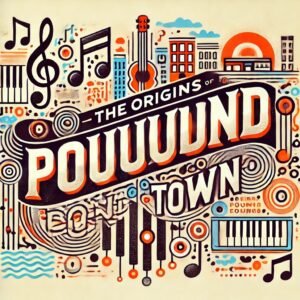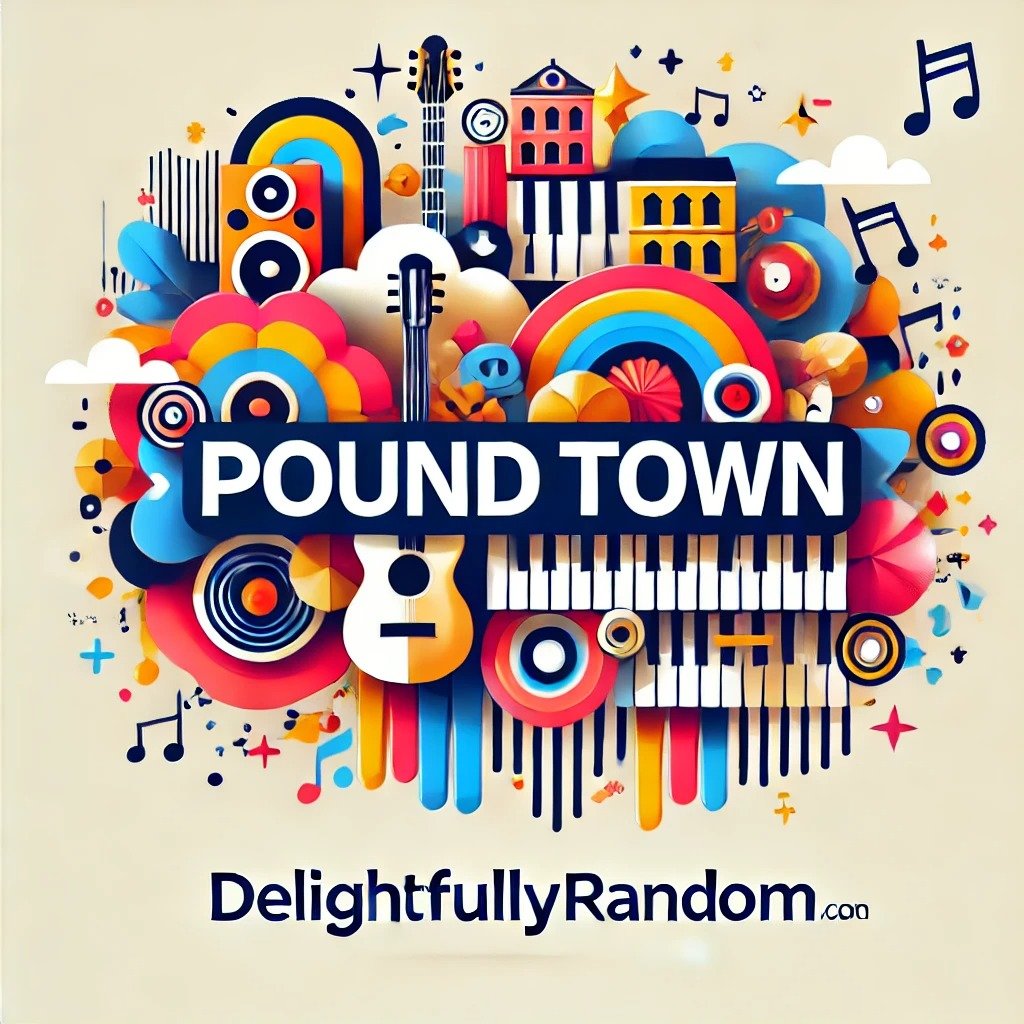The Origins of “Pound Town”
The phrase “Pound Town” is a colloquialism that has gained popularity in recent years, particularly within certain subcultures and online communities. While its exact origins are difficult to pinpoint, the term is generally understood as a slang expression with sexual undertones, often used humorously to refer to sexual activity or a place where such activity takes place.
The phrase has been popularized by its use in hip-hop and rap music, where it is often employed in lyrics to convey a sense of bravado or sexual prowess. The term’s playful nature and its ability to be both explicit and coy have contributed to its widespread adoption, making it a staple in contemporary slang.
Despite its relatively recent rise to prominence, “Pound Town” follows a long tradition of euphemistic language in popular culture, where slang terms are created and circulated to describe intimate activities in a more humorous or socially acceptable manner. As with many such phrases, its meaning can vary depending on the context in which it is used, allowing it to be both direct and nuanced.
“Pound Town” in Popular Culture
One of the most significant factors in the rise of “Pound Town” is its frequent appearance in music, particularly in the hip-hop and rap genres. Artists have used the phrase in their lyrics to convey a variety of meanings, from light-hearted references to more explicit content. The phrase’s flexibility has made it a popular choice for artists looking to add a playful or provocative element to their music.
For example, certain tracks have incorporated “Pound Town” in their chorus or verses, using it as a catchy hook that resonates with listeners. The phrase’s rhythmic cadence makes it a natural fit for music, and its suggestive undertones often align with the themes of confidence, success, and lifestyle that are commonly explored in these genres.
Beyond music, “Pound Town” has also made its way into social media and internet culture. Memes, tweets, and viral videos have all played a role in spreading the term, often using it in humorous or exaggerated contexts. The phrase’s playful ambiguity allows it to be used in a variety of ways, whether as a punchline, a caption, or a hashtag.
The popularity of “Pound Town” in online spaces has also led to the creation of merchandise, including T-shirts, hats, and other accessories that feature the phrase. This commercialization of the term reflects its mainstream acceptance and the way it has been embraced by different demographics.
The Linguistic Appeal of “Pound Town
The success of “Pound Town” as a phrase can be attributed to its linguistic characteristics, which make it both memorable and versatile. The term’s alliteration, with the repeated “P” sound, gives it a catchy and rhythmic quality that is easy to remember and repeat. This phonetic appeal is a key factor in why the phrase has gained traction in music and popular culture.
Additionally, the phrase’s structure allows it to be easily inserted into different contexts, whether as a metaphor, a euphemism, or even a literal description of a physical place. This flexibility has made “Pound Town” a go-to phrase for many people looking to add humor, innuendo, or a playful twist to their language.
The use of “Town” in the phrase also adds to its appeal, as it evokes the idea of a specific location or destination. This element of place can make the phrase feel more tangible and relatable, giving it a sense of presence that resonates with listeners or readers. The concept of a “town” where certain activities take place adds a layer of narrative to the phrase, making it more engaging and imaginative.
The Social Implications of “Pound Town”
While “Pound Town” is often used in a light-hearted or humorous way, its widespread use also raises questions about the social implications of such slang terms. The phrase’s sexual connotations can make it a sensitive topic, particularly in discussions about language, gender, and respect.
On one hand, the use of “Pound Town” and similar slang can be seen as a form of linguistic creativity, where people play with language to create new expressions and meanings. In this sense, the phrase contributes to the richness of contemporary slang and reflects the dynamic nature of language.
On the other hand, the phrase’s explicit nature and its potential to objectify or trivialize intimate activities can be problematic, especially when used in ways that reinforce negative stereotypes or disrespectful attitudes. The casual use of such terms can contribute to the normalization of language that may be offensive or harmful to some individuals or groups.
As with many aspects of popular culture, the use of “Pound Town” is context-dependent, and its impact can vary depending on how, where, and by whom it is used. In some cases, it may be embraced as a playful or empowering expression, while in others, it may be criticized for its potential to perpetuate harmful ideas.
The Future of “Pound Town” in Language and Culture
Given the fast-paced nature of language evolution, it’s difficult to predict how long “Pound Town” will remain a popular term. Slang phrases often have a limited lifespan, as new terms emerge and old ones fall out of favor. However, the phrase’s current popularity suggests that it will likely remain in use for some time, particularly in music and online spaces.
As “Pound Town” continues to be used and adapted by different communities, it may evolve in meaning or take on new connotations. The phrase’s ability to be both explicit and playful gives it a level of adaptability that could allow it to persist even as cultural trends change.
It’s also possible that “Pound Town” could inspire the creation of similar phrases, as people continue to experiment with language and find new ways to express themselves. The success of the phrase highlights the ongoing importance of creativity and innovation in language, particularly in the context of popular culture.
Conclusion: The Enduring Appeal of “Pound Town”
“Pound Town” is a phrase that has captured the imagination of many, thanks to its playful nature, linguistic appeal, and cultural relevance. Whether used in music, social media, or everyday conversation, the term reflects the ways in which language can be adapted and repurposed to fit new contexts and meanings.
While the phrase may carry different connotations depending on the context, its widespread use is a testament to its versatility and appeal. As with any slang term, “Pound Town” is a product of its time, reflecting the attitudes, humor, and creativity of the culture in which it was created.
As language continues to evolve, “Pound Town” may remain a fixture in popular slang, or it may eventually give way to new expressions. Regardless of its future, the phrase’s current popularity underscores the power of language to capture the spirit of the times and connect people in new and unexpected ways. Whether embraced or critiqued, “Pound Town” is a phrase that has made its mark on contemporary culture, and its legacy will likely be felt for years to come.
ALSO READ
